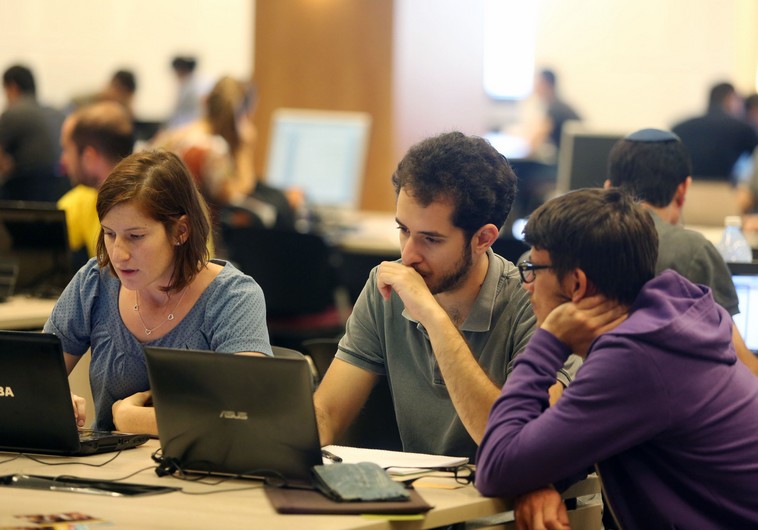Israeli IPO’s World-Beating 73% Surge Leads August Rally
By Gabrielle Coppola
Mobileye NV (MBLY), the technology company that went public a month ago, led gains among U.S.-listed Israeli stocks in August as investors shrugged off concern that the seven-week Gaza conflict will weaken the economy.
Mobileye has surged 73 percent to $43.22 since listing in New York on July 31, the biggest rally among all companies globally that raised $500 million or more in the past three months. Caesarstone Sdot-Yam Ltd. (CSTE), the maker of quartz counter-tops, climbed 20 percent in August, the second-best performance on the Bloomberg Israel-U.S. Equity Index, which rose 4.8 percent.
While signs have emerged that the Gaza fighting is starting to curb output at some Israeli businesses, hurt tourism and cut into consumer spending, investors have shown little concern, instead bidding up stocks in line with gains being posted in the U.S. and other major global markets. The performance of Mobileye and Caesarstone, which has more than tripled since its 2012 listing, could help bolster demand for more Israeli initial public offerings, according to Josef Schuster, the founder of Chicago-based IPOX Schuster LLC.
“Momentum drives everything right now,” Schuster said by phone Aug. 28. “Mobileye and Caesarstone, if you held that, you made a lot of money.”
The Nasdaq Composite Index (CCMP) advanced 4.8 percent this month, while the Standard and Poor’s 500 Index gained 3.8 percent, breaking the 2,000 mark on Aug. 26, 27 and 29.
Investors are pouring money into equities on optimism the U.S. economy is strengthening and as European Central Bank President Mario Draghi signaled policy makers may introduce an asset-buying plan to bolster growth amid slowing inflation.
Record IPO
Executives at Mobileye didn’t respond to a request for comment made after business hours in Israel.
Mobileye’s $1 billion IPO was the biggest in the U.S. by an Israeli company on record, part of a rush of deals last month. Six Israeli companies have gone public in the U.S. this year, according to data compiled by Bloomberg. Eight more have offerings pending.
“We’re continuing to see moderate appetite for IPOs in the U.S. by Israeli companies,” Phyllis Korff, a lawyer at Skadden Arps, Slate, Meagher & Flom LLP in New York, said in an e-mail. “This activity could continue through the end of 2014 and into the first quarter of 2015,” said Korff, who worked on the Mobileye offering.
The Jerusalem-based technology company, whose customers include luxury electric-carmaker Tesla Motors Inc., posted 2013 net income of $19.9 million following two years of losses, according to its IPO prospectus. Revenue in 2013 was $81.2 million, more than double the figure from 2012.
Rate Cut
“People are buying it on the hope of great growth,” Brian Krawez, who oversees $3 billion at Scotts Valley, California-based Scharf Investments, said by phone Aug. 28. “People were very skeptical of the stock market, they missed a lot of the rally. Now with the market up, they’re moving cash from the sidelines.”
While global financial markets have shrugged off fighting in Gaza, it has begun to take its toll on Israel’s economy. The Bank of Israel unexpectedly cut interest rates to a record low on Aug. 25 in an attempt to boost an economy already hit by slowing exports.
Israeli growth slowed in the second quarter to 1.7 percent from 2.8 percent in the previous three months, as exports, which account for about a third of the economy, tumbled 18 percent, according to official data released Aug. 17.
Stock Gains
An Egyptian-brokered truce that started Aug. 26 halted seven weeks of fighting that killed more than 2,100 Palestinians and 70 on the Israeli side, according to official tallies.
The local TA-25 Index (TA-25) rose 0.6 percent this month, trailing the 4.8 percent gain on the Bloomberg Israel-US Index. Tel Aviv stocks have appreciated 5.3 percent this year, compared with an 11 percent advance for U.S.-listed Israeli stocks.
Caesarstone, which makes quartz kitchen counter-tops, surged this month after issuing a new full-year sales estimate that surpassed analysts’ projections. The stock has appreciated 373 percent since its IPO in March of 2012.
“They’re just executing extremely well and the stock was cheap at the onset,” Schuster said. “It’s one of those stocks you wish you had held on to forever.” ((An earlier version of this story corrected the law firm’s name in the ninth paragraph.))


